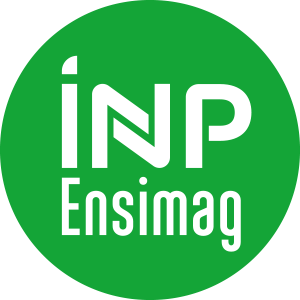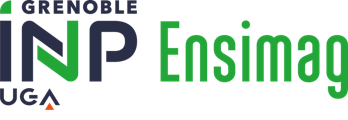Number of hours
- Lectures 18.0
ECTS
ECTS 1.75
Goal(s)
This course is addressed to future computing professionals. It aims at giving them an overview of the historical evolution of computing (in a broad sense, including communication and networking). More precisely, the course addresses:
• the building of the scientific concepts of computer science.
• the technical evolution of hardware and software, the interaction of technical and scientific aspects, and their interplay with related areas (e.g. microelectronics).
• the relationship of computing with other disciplines.
• the impact of computing on the society.
The course also gives an overview of the life and contribution of the men and women who built computer science and engineering.
Contact Roland GROZContent(s)
1. Overview of the course: motivations, objectives; the specific aspects of computing (epistemology, relationships to other domains, impact on society). Commented general chronology: the main areas of computing and their mutual interaction.
2. The precursors: the invention of algorithms, mechanical calculators, Babbage, Boole, tabulators, analog computers.
3. From Turing to von Neumann (1). Two parallel paths: the first computers, the formalization of algorithms.
4. From Turing to von Neumann (2). The architectural model "of von Neumann"; its first implementations (Manchester, Cambridge); an industry is born.
5. The birth of programming languages: Fortran, Algol, Cobol, Lisp. The "software crisis" ; the birth of software engineering and its recent advances.
6. The mainframe era. From transistors to integrated circuits. Internal and external parallelism.
7. Microprocessors and personal computers. Xerox PARC invents modern computing.
8. Evolution of operating systems
9. Birth and evolution of the Internet
10. The advent of the scientific approach to computing: evolution, progress and achievements, challenges.
11. From data to knowledge: databases, artificial intelligence, the Web.
12. Computing and its environment: the digital world; computational sciences; computing and society.
Specific aspects
A course in the history of science in not conceivable without some notions of epistemology. In this respect, computer science holds a special place, through its dual scientific and technical aspects, and through its approach to problems. On this subject, see the articles of Gilles Dowek (1, 2).
Format of the course
Lectures, with some complements:
- (possibly) lectures by guests on specific subjects.
- reading and commenting historical texts.
- exercises in using languages or systems of historical importance, possibly using simulators.
Students are expected to do individual reading (books, online articles and videos, etc.).
Prerequisites
Practical work and paper report (35 %)
White paper and oral presentation (65 %)
These projects will be individual or by small groups, depending on the attendance.
- Épistémologie de l'informatique
1. G. Dowek. Les quatre concepts de l'informatique, Didapro, 2011
2. G. Dowek. La place de l'informatique dans la classification des sciences, Exposé au séminaire Philosophie de l’informatique, de la logique et de leurs interfaces, coordonné par Jean-Baptiste Joinet, le 30 janvier 2012, à l’École normale supérieure.
Ces deux textes sont accessibles en ligne (https://who.rocq.inria.fr/Gilles.Dowek/)
- Livres et revue sur l'histoire de l'informatique
3. P. E. Ceruzzi. A History of Modern Computing, 2nd ed., MIT Press, 2003
(Version condensée : Computing: A Concise History, MIT Press, 2012)
4. M. Campbell-Kelly et al. Computer: A History of the Information Machine, Westview Press, 2014
5. IEEE Annals of the History of Computing, IEEE Computer Society
- Exemples de cours sur l'histoire de l'informatique
Purdue (l'un des cours les plus anciens sur l'histoire de l'informatique)
S. Rosen. A Purdue University Course in the History of Computing, Tech. Report, 1991
http://docs.lib.purdue.edu/cstech/872
University of Washington
http://courses.cs.washington.edu/courses/csep590a/06au/
Carnegie-Mellon University
http://www.cs.cmu.edu/~tcortina/15292s15/lectures.html
La conception de ce cours est détaillée dans : T. J. Cortina, R. McKenna. The design of a history of computing course with a unique perspective, SIGCSE Proceedings of the 37th SIGCSE technical symposium on Computer science education, pp. 67-71
- Autres sources
The Computer History Museum
www.computerhistory.org/



